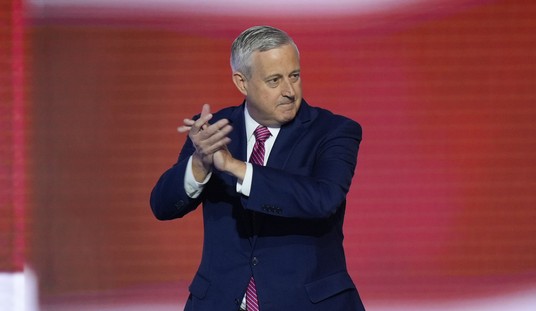On July 15, the opening day of the Republican convention, federal judge Aileen Cannon dismissed special counsel Jack Smith's indictment of former President Donald Trump for misuse of classified documents. Legal arguments aside, it cast a shadow over all the breathless media hype that came before it.
Year after year, partisan "legacy media" outlets have churned out thousands of stories full of anticipation that the walls of scandal would close in on Trump. Once again, a litany of Trump "legal woes" hasn't damaged his political standing.
A new Media Research Center study of 2023 and the first half of 2024 by Rich Noyes revealed that the evening news shows of ABC, CBS and NBC produced a whopping 1,608 minutes of airtime on Trump legal matters, and as you might expect, it was fiercely negative (95%).
The only successful case, the accounting-records case brought by Manhattan District Attorney Alvin Bragg -- very rarely described as an elected Democrat -- attracted 485 minutes of TV news. Even the dry details of jury selection were treated as fascinating. Reporters thrived on negative words. They used the word "crime" or "criminal" 29 times to talk about Trump's actions; "guilty" was heard 40 times; "felony" was used 48 times, and "convicted" or "conviction" was employed 108 times.
Jack Smith's cases on Trump's alleged election interference (311 minutes) and Trump's possession of classified documents (243 minutes) followed behind. The Georgia election case brought by Fulton County District Attorney Fani Willis (elected Democrat) brought another 187 minutes of negative publicity. None of these will proceed before the election, much to the media's chagrin.
Recommended
On and on, these cases went, and their political effect boomeranged. Instead of damaging Trump, it destroyed the chances of his primary opponents. This collection of cases formed the lion's share of the networks' coverage of the GOP primaries, crowding out both Trump's competitors and policy issues. They cared less about candidate debates (which Trump skipped) and more about forthcoming court dates.
On Jan. 1, 2023, an average of polls calculated by RealClearPolitics showed 37.2% of Americans had a favorable impression of Trump. By July 10, 2024, that had risen more than five points to 42.5%. At the same time, those viewing Trump unfavorably declined by more than two points to 54.5%.
It's a stark indication of the media's dwindling influence. Most Americans view these prosecutions, and the subsequent press hype, as overtly partisan, so they are dismissed. The target became a more sympathetic figure through the onslaught.
In the end, it can feel like endless hours of noise, like ... fake news. That's not to say every fact is false, but the promotional hype turns out to be false. The Robert Mueller probe never achieved the expected Trump indictments that journalists so deeply desired.
Conservatives challenged the legitimacy of the 2018 Pulitzer Prize for National Reporting. The New York Times and The Washington Post won for stories that "dramatically furthered the nation's understanding of Russian interference in the 2016 presidential election and its connections to the Trump campaign."
The Pulitzer gang reviewed the winning articles again and insisted "no passages or headlines, contentions or assertions in any of the winning submissions were discredited by facts that emerged subsequent to the conferral of the prizes." But many of these articles described a prosecutorial process -- a process that fell flat.
As November approaches, this media-prosecutorial complex clearly failed to accomplish what it hoped for -- a deeply damaged Republican nominee. All they have is a Pulitzer participation trophy.
Tim Graham is director of media analysis at the Media Research Center and executive editor of the blog NewsBusters.org.


